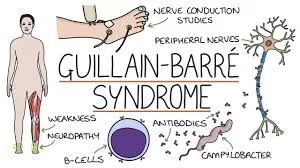Pune: January 26, 2025
The number of Guillain-Barré Syndrome (GBS) cases in Pune continues to rise, with nine new suspected cases added to the existing list of 73 confirmed patients. This brings the total count of suspected and confirmed cases to 82 in the region. The health crisis has drawn significant attention, particularly in areas near the Mulshi dam, where investigations are underway to determine the potential causes of the outbreak.
The district health department has intensified its efforts to trace the source of contamination. Recent water sample tests from a well located near the dam revealed alarmingly high levels of Escherichia coli (E. coli) bacteria, a known indicator of fecal contamination. The presence of E. coli raises concerns about waterborne transmission as a potential factor contributing to the outbreak of GBS, a rare neurological disorder in which the body’s immune system attacks the peripheral nervous system.
Dr. Sanjeev Wavare, Assistant Health Officer of the Pune Municipal Corporation, confirmed the findings and stated, “We are closely monitoring the situation and working to identify the exact source of the outbreak. Immediate steps are being taken to prevent further contamination and ensure public safety.”
Experts suspect that the outbreak could be linked to environmental factors, including polluted water sources. GBS, while rare, can be triggered by infections such as those caused by E. coli or other bacteria. Symptoms typically include muscle weakness, tingling sensations, and in severe cases, paralysis. Early detection and treatment are crucial to managing the condition.
Local authorities have urged residents to exercise caution, especially when consuming water from wells or other untreated sources. Preventive measures, including boiling water and maintaining personal hygiene, are being emphasized.
The administration has also ramped up its public health response, with medical teams deployed to affected areas for screenings and awareness campaigns. Water supply systems near the Mulshi dam are being tested rigorously, and the health department is working with environmental experts to contain the situation.
The rise in GBS cases has sparked widespread concern, with health officials calling for heightened vigilance and public cooperation. As investigations continue, authorities remain committed to identifying and mitigating the root cause of this alarming health issue.
Residents are encouraged to report any symptoms associated with GBS promptly and adhere to preventive measures to curb the spread of waterborne illnesses.











